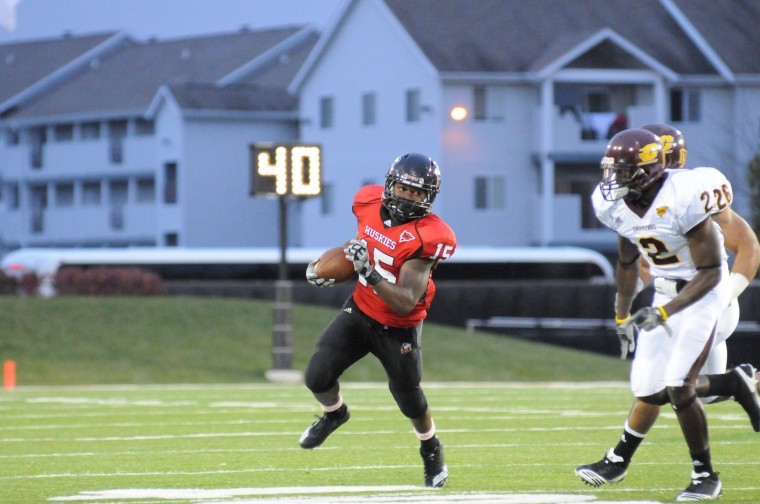Kill’s Kansas ties open recruiting pipeline
October 27, 2010
In any profession, building relationships and networking can be vital to one’s success.
Coaching is no different.
NIU football head coach Jerry Kill and his staff have built fruitful relationships throughout their years together.
Perhaps the most fruitful is the rapport that this staff has with the coaches of Kansas’ junior colleges.
“You can really see the difference between how professional and organized some guys are,” said Fort Scott Community College head coach Jeff Sims, who coached current NIU tailback Jasmin Hopkins. “Coach Kill’s reputation in Kansas and what he’s done with junior college players helped us encourage [Hopkins] to go there.”
Kill’s presence in the Kansas JUCO system, according to NIU offensive coordinator Matt Limegrover, begins with Tom Matukewicz.
Matukewicz, currently NIU’s linebackers coach, began his coaching career at Coffeyville Community College, coaching offensive line. He used this position to get to know a number of the coaches in the state.
This has been a valuable asset to the coaching staff, as these coaches have helped to make Kill and company aware of standout players in the state.
“Outside of maybe Texas or California, there’s no place better than the Kansas junior colleges,” Limegrover said. “Tom [Matukewicz] is our guy in the Kansas junior colleges. He has a great relationship, not a good one but a great one, with just about all those coaches. He knows those guys, and he has their respect. That word gets around.”
It’s a constant recruiting presence in the state that allows Matukewicz and Kill to keep those relationships fruitful.
And it goes both ways. Former NIU grad assistant Brandon Staley is now the defensive coordinator at Hutchinson Community College, a position Matukewicz’s connections helped him obtain.
It’s a tie that could prove fruitful in the future.
But Matukewicz believes the real benefit of recruiting junior college athletes is their attitude toward the game of football.
“You have to love football to play in that league,” Matukewicz said. “The converts are the best kind. If a kid struggled in high school, then goes to junior college and gets good grades, then those are the best kind, because they knew they made a mistake, they corrected it and now you don’t have to worry about it when they come here.”
It’s these type of players that allow Kill and his staff to both develop student-athletes into strong young men, as well as immediately plug holes where a quick fix is needed.
And it’s Kill and Matukewicz’s connections in Kansas that helps to make it all possible.







